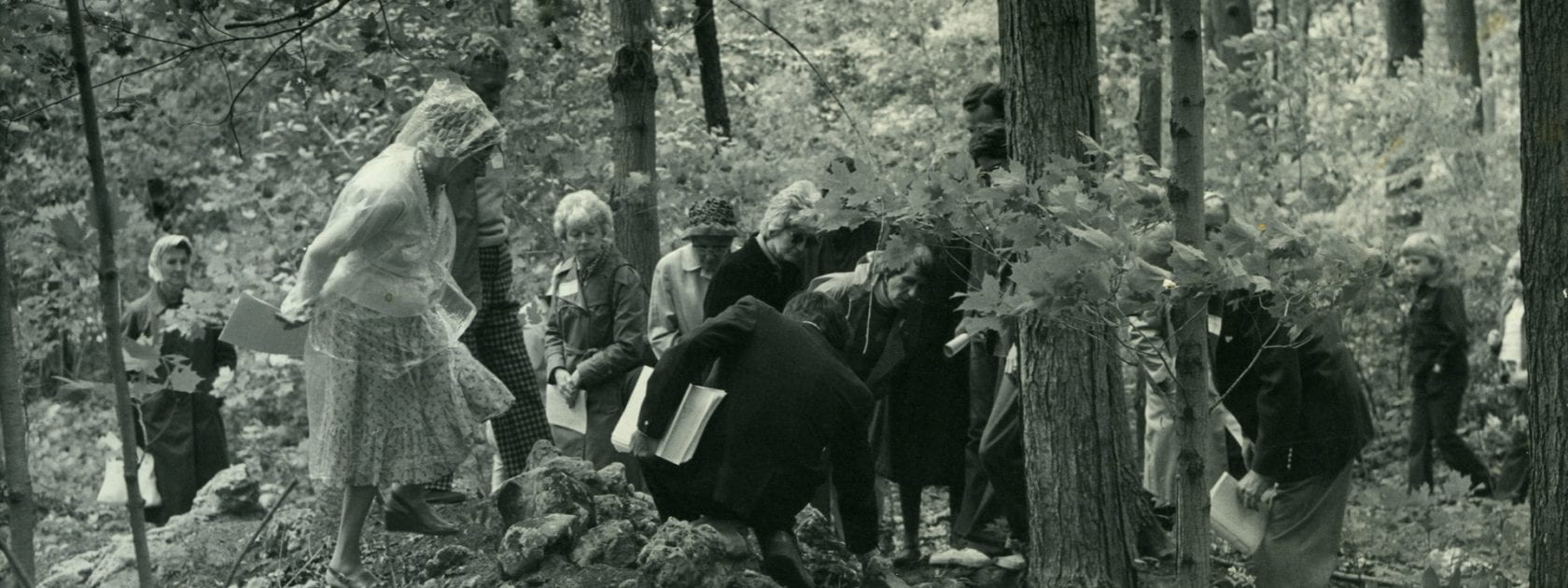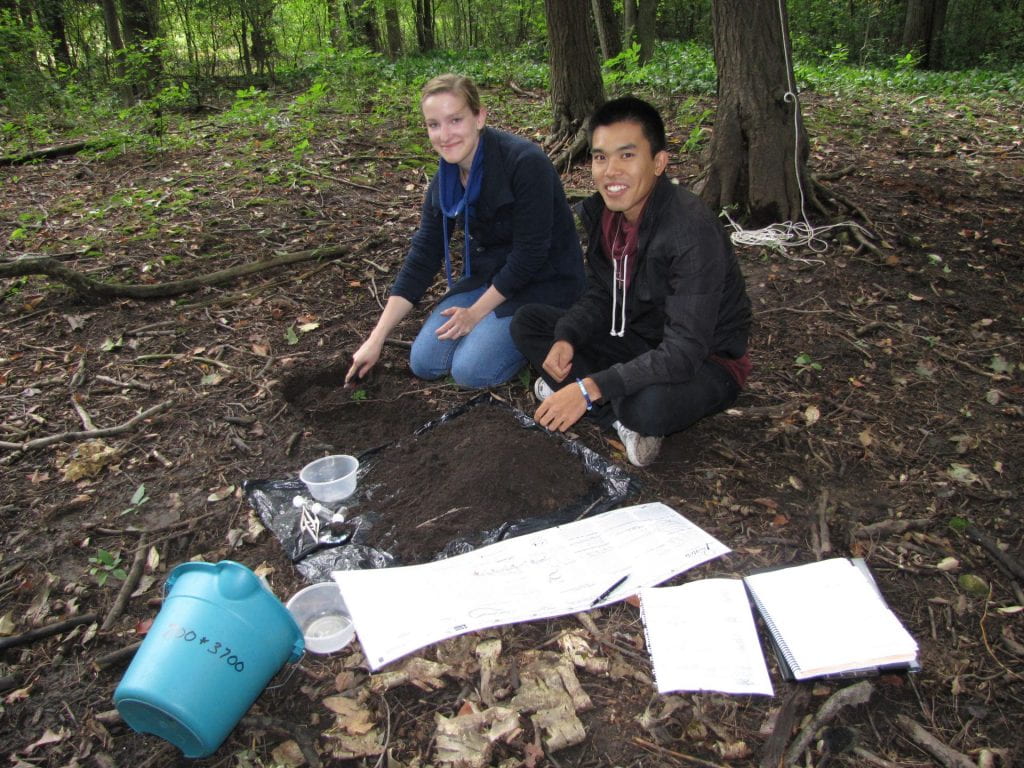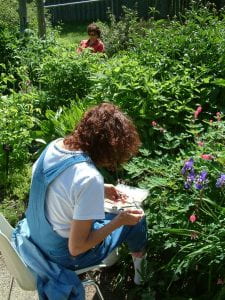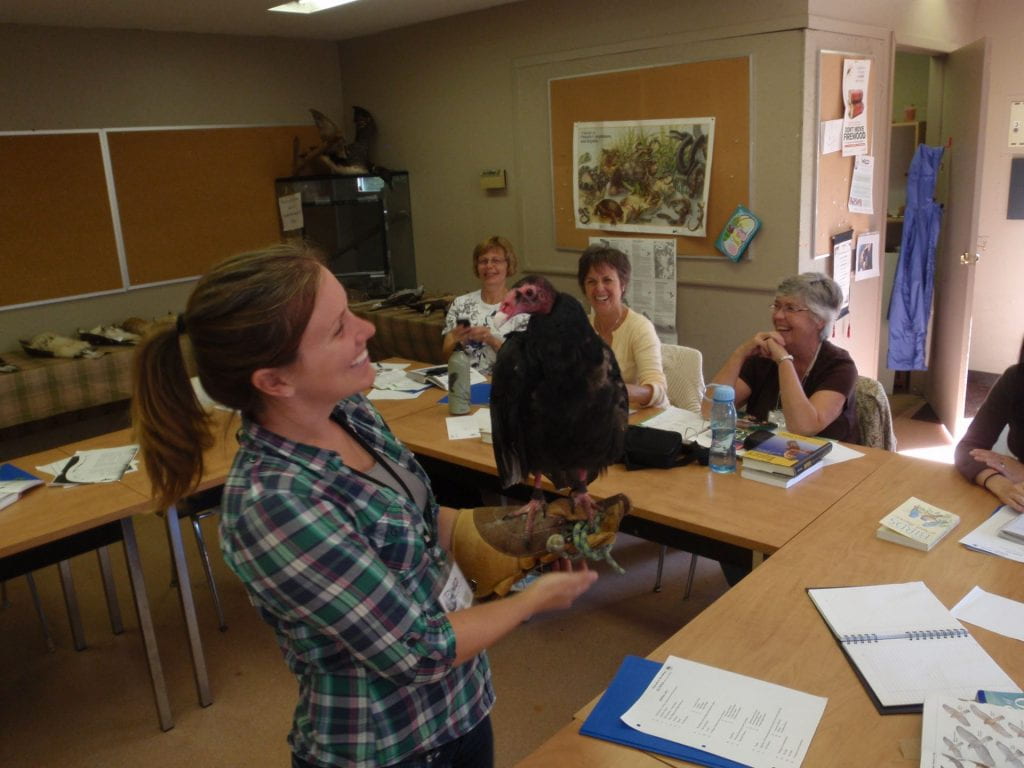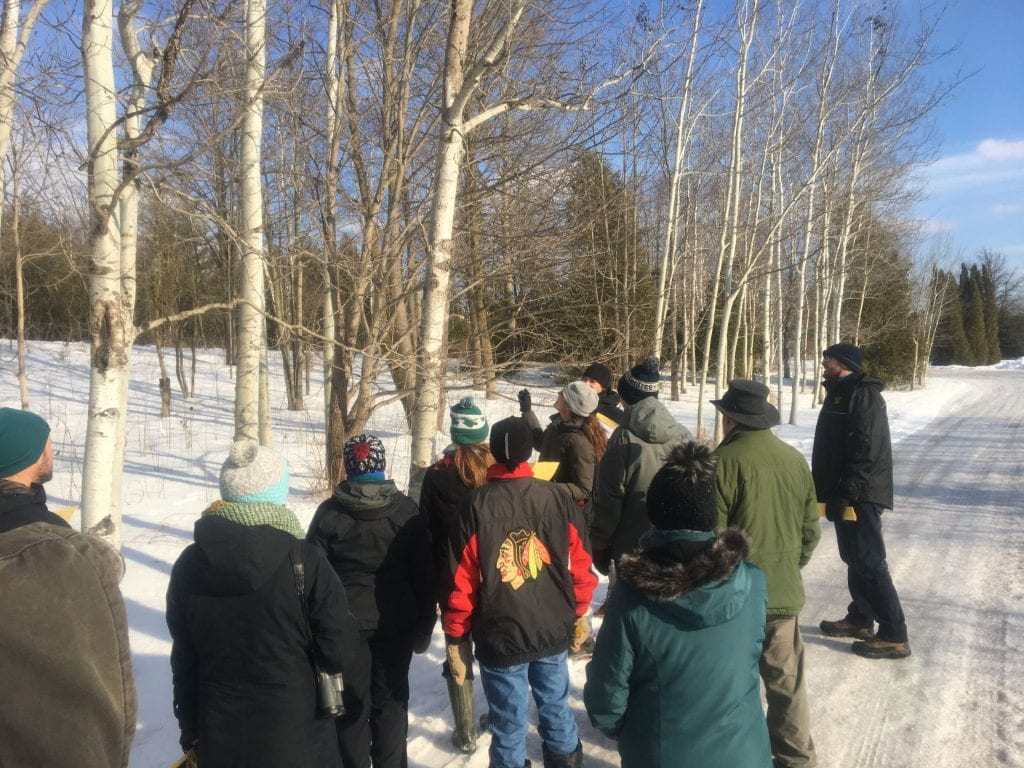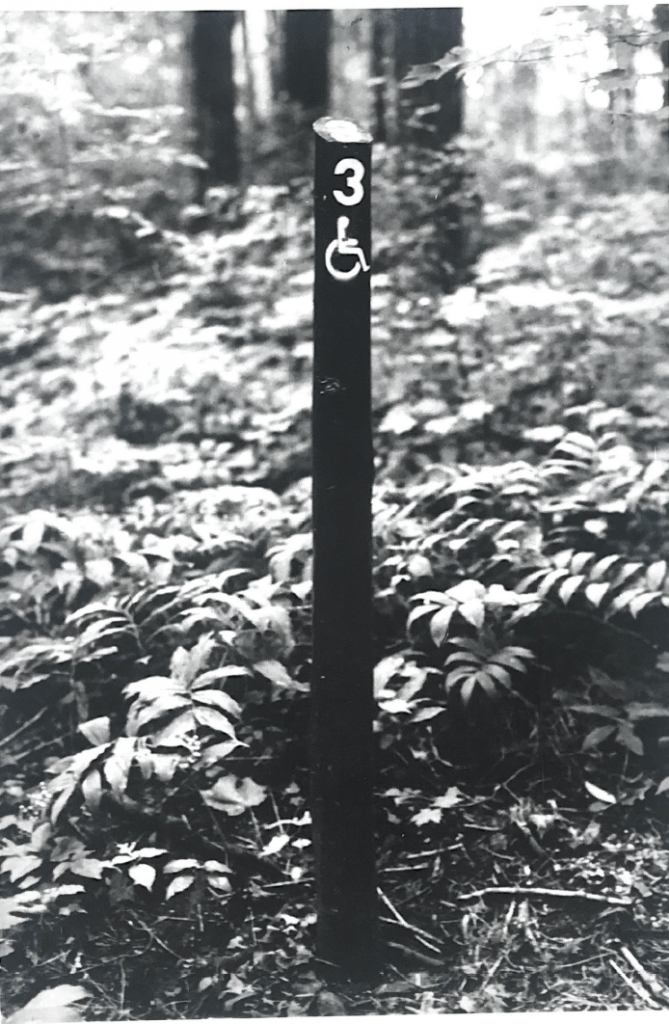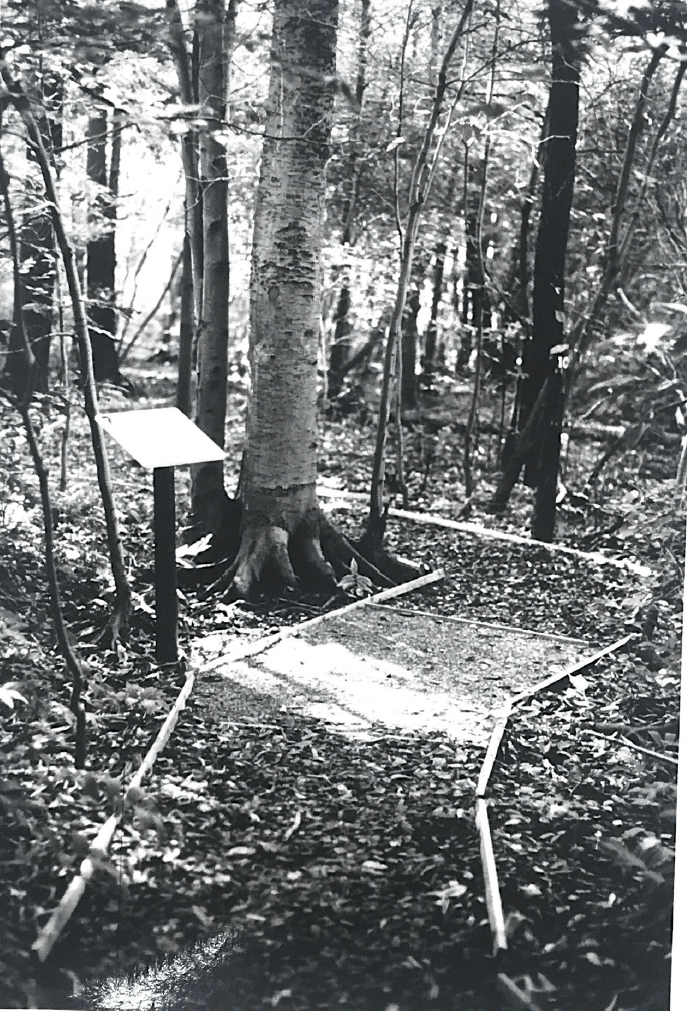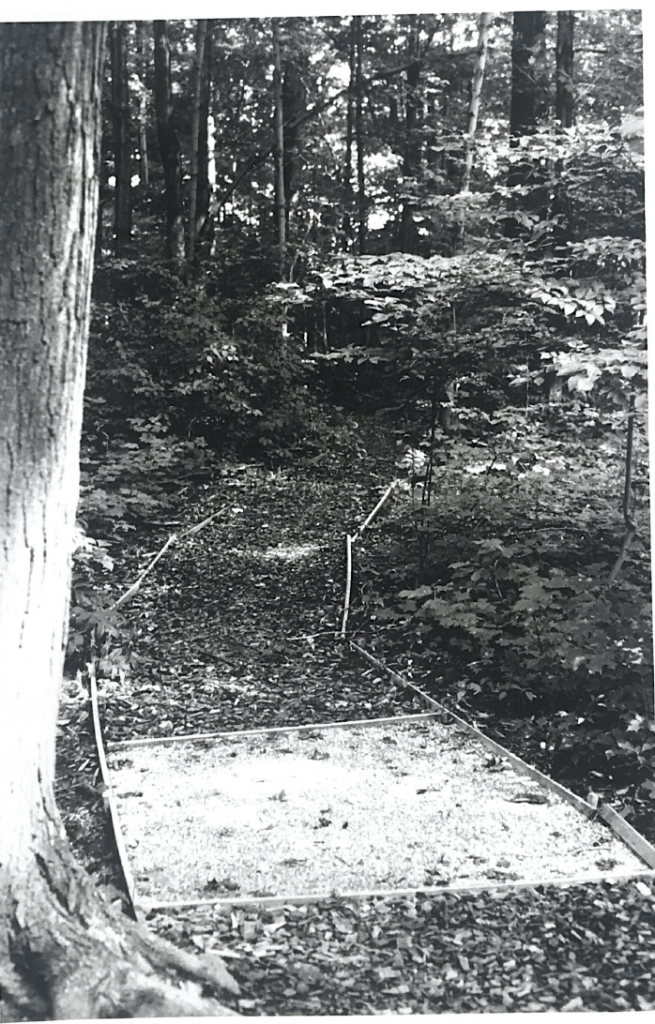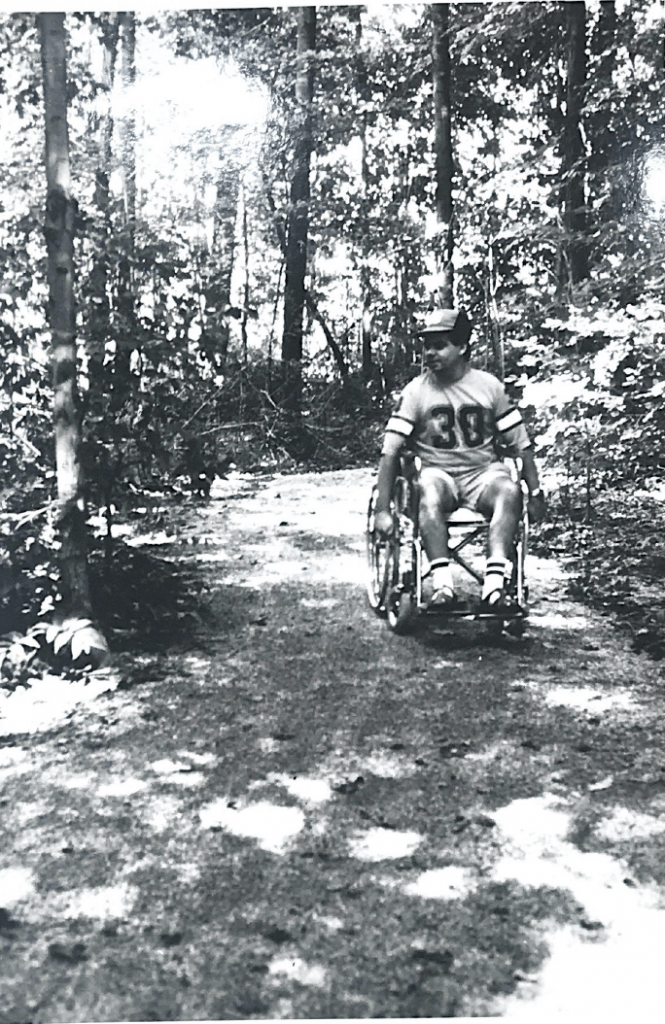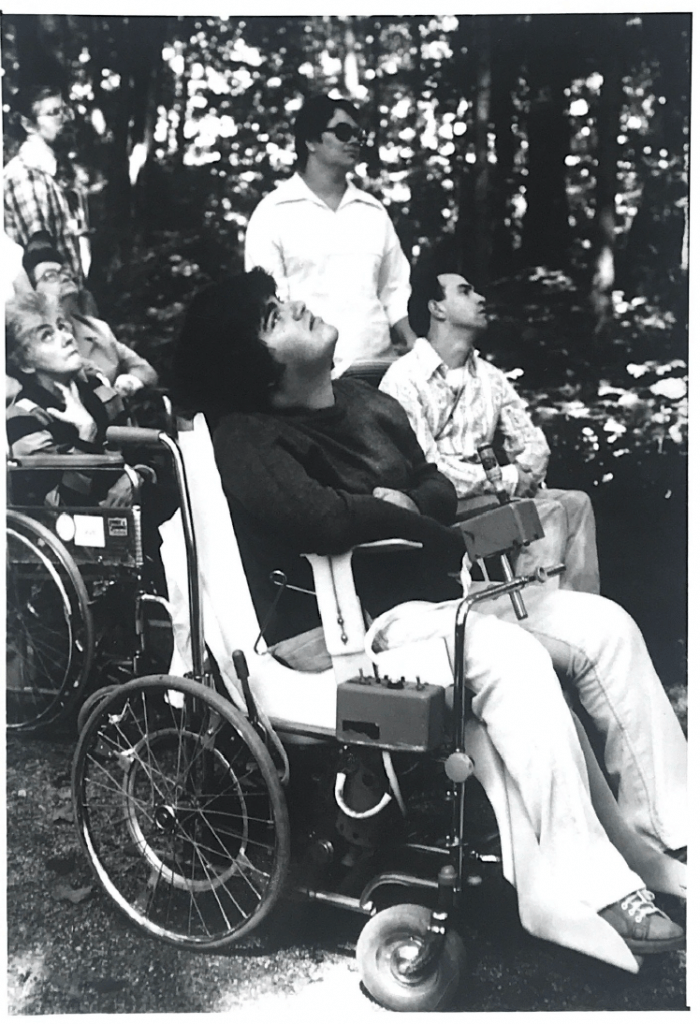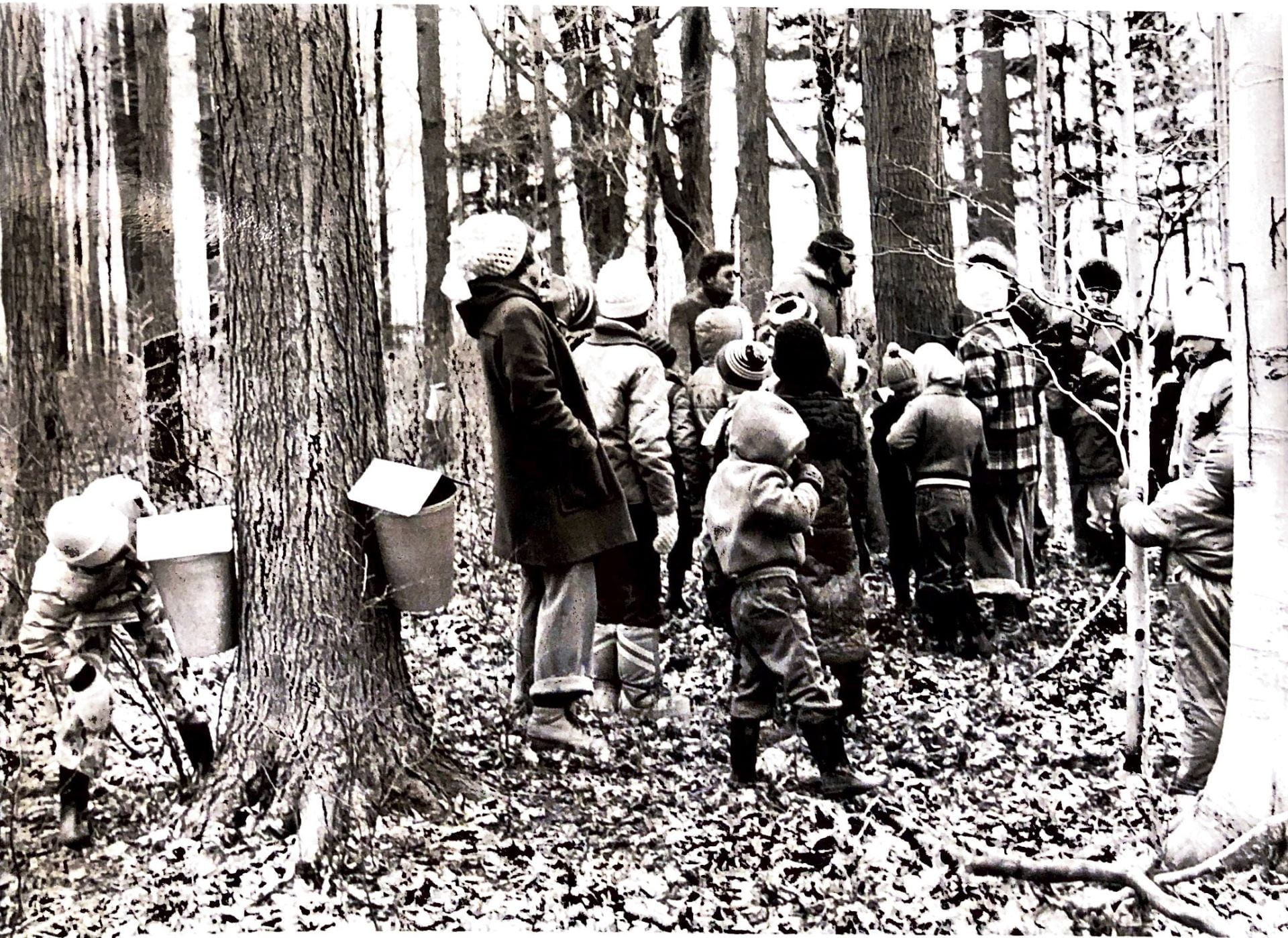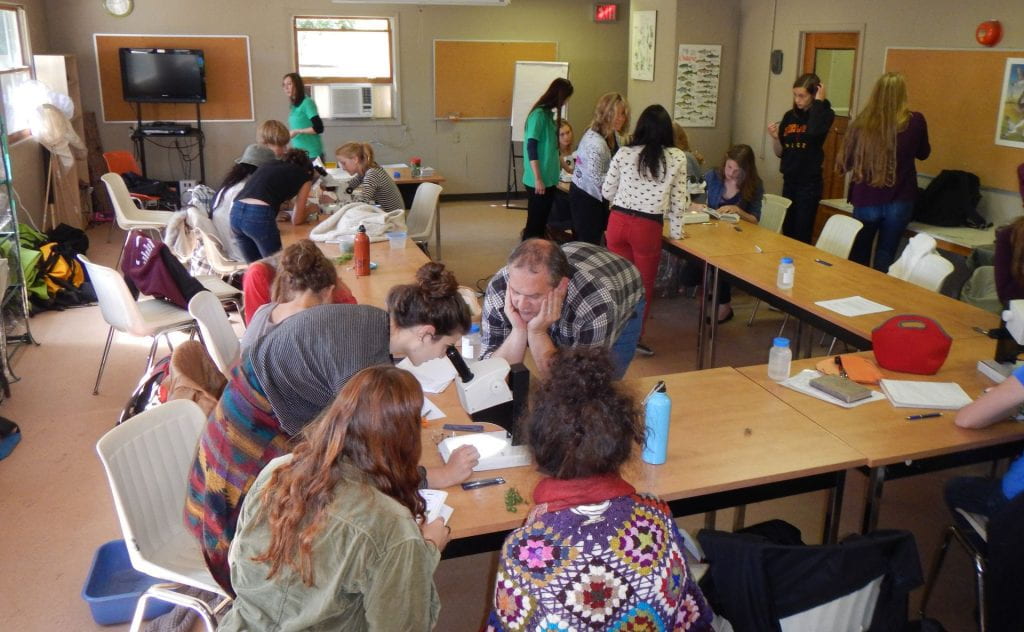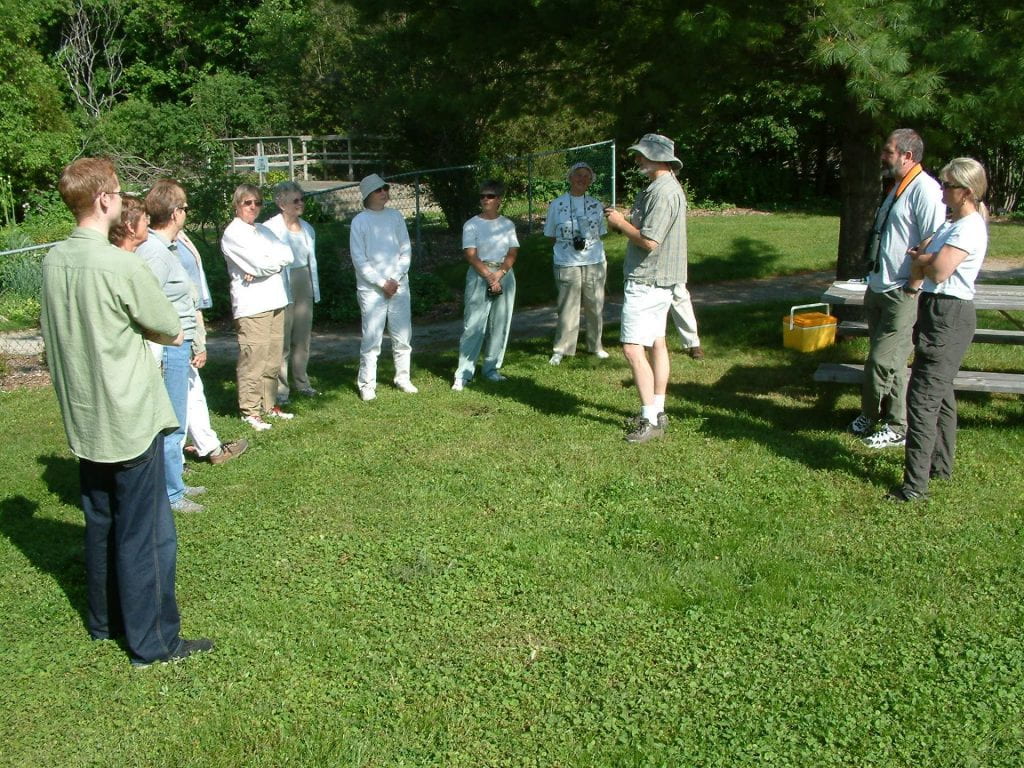Header image: A group of people on a tour of Victoria Woods, 1977.
Education has been at the heart of The Arboretum’s mission from its very beginning. In fact, The Arboretum was first established to benefit the Horticulture, Landscape Architecture, and Botany courses held at the University of Guelph.
Over the past 50 years, The Arboretum has expanded its educational offerings beyond the University of Guelph and to the greater public. Adult workshops, school programs, teacher education activities, self-guiding interpretive trails, Biodiversity Sheets, student group tours, bus tours, noon hour walks, Weekends at the Nature Centre, puppet shows, Hallowe’en programs, Owl Prowls, Junior Naturalists, Wednesday Evening Walks, Sunday Afternoon Walks, Green Web articles, Bioblitzes and much more have provided everyone with the opportunity to learn at The Arboretum.
Course Connections
The Arboretum has served University of Guelph undergraduate and graduate courses since its establishment. These courses allow students to complete research and learn while immersing themselves in nature.
A variety of disciplines utilize The Arboretum for student learning. Botany, Horticulture and Crop Science courses typically study plant populations to understand their growth, diversity and ecological functions, including the roles plants play in ecological restoration. Landscape Architecture courses similarly study plants and trees at The Arboretum, but for the purposes of landscape analysis and design. Many classes come to The Arboretum to study the creatures that it home. For instance, Zoology and Molecular Biology and Genetics courses like ZOO*4920 Lab Studies in Ornithology, ZOO*3700 Integrative Biology of Invertebrates and MBG*2400 Fundamentals of Plant and Animals Genetics focus on mammals, birds and invertebrates.
Many other disciplines choose to visit The Arboretum to enhance their students’ learning. PHIL*2070 Philosophy of the Environment immerses students in The Arboretum to discuss climate change, resource extraction and justice, conservation, ethical considerations, the perceived superiority of humans over nature and such on. First year seminar in Interdisciplinary Studies: Outdoor School and Special Topics in Extended Practices/Studio Art: Outdoor School take a similar approach by weaving the study of the humanities (i.e., Geography, English Literature, etc.) and studio art with outdoor education.
The Arboretum and its staff are grateful to play an integral role in the University of Guelph students’ learning.
Workshops
The Arboretum holds a variety of workshops open to the public and participants of all ages. While many of workshops are centred around nature education, workshops in the arts, astronomy, gardening, landscaping, well-being and other similar subjects are offered.
The Arboretum strives to connect people to nature through immersive and exciting workshops. For example, in July 1984, The Arboretum held an Interaction Day for young children. Children were given the opportunity to see a snake, a dove and a rabbit up-close at this workshop. Several decades later, The Arboretum continues to offer close interaction with wildlife to educate and inspire workshop participants.
To learn about current workshops being offered at The Arboretum, visit The Arboretum’s workshop page here.
The Arboretum’s Accessible Trail
The Arboretum has offered many self-guiding, interpretive trails as a way for visitors to learn about nature while being outside. However, previous Interpretive Naturalist and Arboretum Director Alan Watson found that many of these interpretive trails were designed for able-bodied people after classes of visually impaired, deaf, and hard of hearing students visited The Arboretum. Seeking to remedy this inequity, Watson applied to funding and created a taskforce in hopes of creating an accessible trial in The Arboretum.
In 1978, The Arboretum opened its accessible trail to the public. The trail, located in Victoria Woods, boasted its wheelchair accessibility and kick bar to guide visually impaired individuals who used canes along the trail. Additionally, the trail would shift from woodchips to gravel to signal to individuals that they were near an interpretive sign, all of which used a large-print font.
Sadly, the accessible trail was difficult to maintain and eventually closed. Nevertheless, The Arboretum and its staff are incredibly inspired by Watson’s pursuit to make nature education accessible for everyone.
Maple Syrup Days
Maple Syrup Days was a program started in the early 1980s by Interpretive Naturalist, and later Arboretum Director, Alan Watson.
After the tree sap started to flow in early March, members of the public were invited to visit The Arboretum to learn more about the creation of maple syrup. Watson would lead attendees through the forest, demonstrating how to harvest sap and process it into syrup, taffy, and sugar. Alongside these lessons, Watson would introduce participants to nature’s sights, sounds and smells on their trek through the forest. Additional sapping workshops were held at the J.C. Taylor Nature Centre.
After the event became extremely popular, Watson and other Arboretum staff were concerned about too much foot traffic through the small area of forest. The event was cancelled in order to halt any potential damage that could harm the health of the forest floor.
The Da Vinci Arts and Science Community and Environmental Leadership Program
The Da Vinci Arts and Science Community and Environmental Leadership Program is an opportunity for grade 11 students to complete an entire semester of learning at the J.C. Taylor Nature Centre. The students and their teachers use The Arboretum’s facilities to complete their classes and receive four highschool credits in Indigenous Literature, Introduction to Anthropology, Sociology and Psychology, and Exploring and Creating in the Arts. The students also have the opportunity to lead a creative program called Eco-Artists for grade 4 students. This opportunity allows the grade 11 students to grow their leadership and teaching skills while developing a strong connection to the outdoors.
To learn more about the Da Vinci Program, visit their website here.
Nature Throughout the Seasons for International Students and New Canadians
The Arboretum has worked to welcome International U of G students and new Canadians to Guelph through the “Nature Throughout the Seasons for International Students and New Canadians” project. Through this project, newcomers can attend free nature interpretation programming to learn more about the local area. The goal of this project is to help International students and new Canadians feel at home in a new country by connecting them to local nature.
The four program offerings introduce participants to the local environment and its biodiversity in four program offerings centred around Spring, Summer, Fall and Winter.
To learn more about the program and its offerings, visit the Nature Throughout the Seasons for International Students and New Canadians page on The Arboretum’s main website.
The Arboretum partners with school boards for nature interpretation education
The Arboretum commits itself to educate people of all ages on nature and the creatures that call it home. To increase the public’s interest in nature, The Arboretum has partnered with the Waterloo Catholic District School Board (WCDSB) to run nature interpretation programs and distribute Biodiversity Sheets to elementary students.
In the past, The Arboretum has formed a partnership with WCDSB to distribute Tree leaves Biodiversity Sheets to all students. This particular Biodiversity Sheet is available in English, French and Anishinaabemowin, allowing students to familiarize themselves with trees in multiple languages. These sheets, paired with their accompanying Biodiversity Activity Sheets, provide students with an opportunity to interact with nature and learn how to identify native Ontario trees in their schoolyards or neighbourhoods.
The Arboretum’s nature interpretation programs bring nature into a classroom setting. Arboretum Naturalists and Naturalist Interns visit schools to teach students of all ages a variety of subjects. Students can learn about nature, birds, bugs and more through these programs! Although these programs usually are held in person, they have transitioned to an online format during the COVID-19 pandemic.


